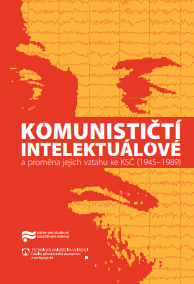Čeští a slovenští intelektuálové a jejich vztah ke komunistické straně v kontextu východní Evropy
Czech and Slovak intellectuals and their relations to the communist party in the context of Eastern Europe
Author(s): Jan Rychlík
Subject(s): Political history, Social history, Modern Age, Recent History (1900 till today), History of Communism
Published by: Ústav pro studium totalitních režimů
Keywords: Easter Europe; communist party; Czechoslovakia; intellectuals; USSR;
Summary/Abstract: The whole Marxist-Leninist theory is quite complex and its understanding requires a specific knowledge of philosophy and economy, and even advanced ability of abstract thinking. Only people of elites with their education, insight and management skills were able to become real leaders of the communist movement. Intellectuals were important part of these elites. They did not earn their living by physical work, but contemplated about world and its problems. After the Great War the communists thought that the Russian revolution was only a beginning of the world revolution and establishment of other soviet republics. At first the USSR was supposed to be a global union of states. In reality was this state continuously matched with former Russia, that was indeed its biggest part. This term was used this way not only beyond borders, but by communists too. Understanding of the communist idea by intellectuals was in Eastern Europe influenced by relations their specific state/nation had with Russia during the course of history. This did not prove to be an issue in the case of Czech and Slovak intellectuals of the interwar and post-war Czechoslovakia, because they traditionally and openly inclined to Russia. This attraction was only strengthening in the Second World War:USSR („new socialist Russia“) became an ally and liberator. Similar situation existed in Bulgaria and Yugoslavia immediately after the war. On contrary Poland, Hungary and Romania were rusophobic due to previous encounters. Communists in the countries mentioned above (not very numerous after war) were perceived as a fifth column instead of heroes of the anti-Nazi resistance. As a result the relation of the intellectuals in these countries was ambivalent or negative towards the local communist parties.
Book: Komunističtí intelektuálové a proměna jejich vztahu ke KSČ (1945-1989)
- Page Range: 18-31
- Page Count: 14
- Publication Year: 2013
- Language: Czech
- Content File-PDF

